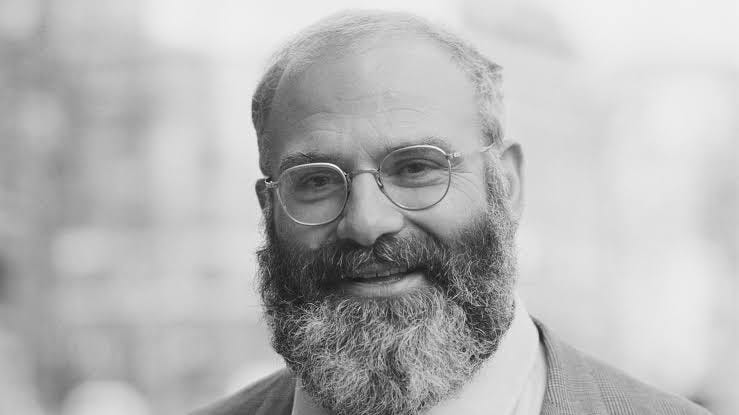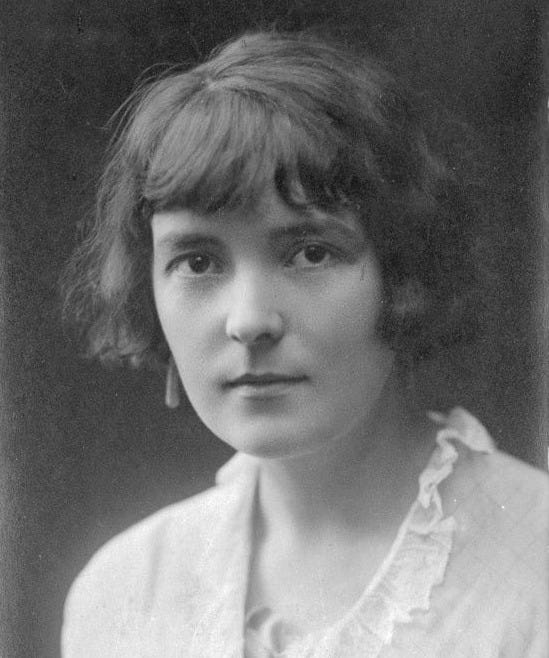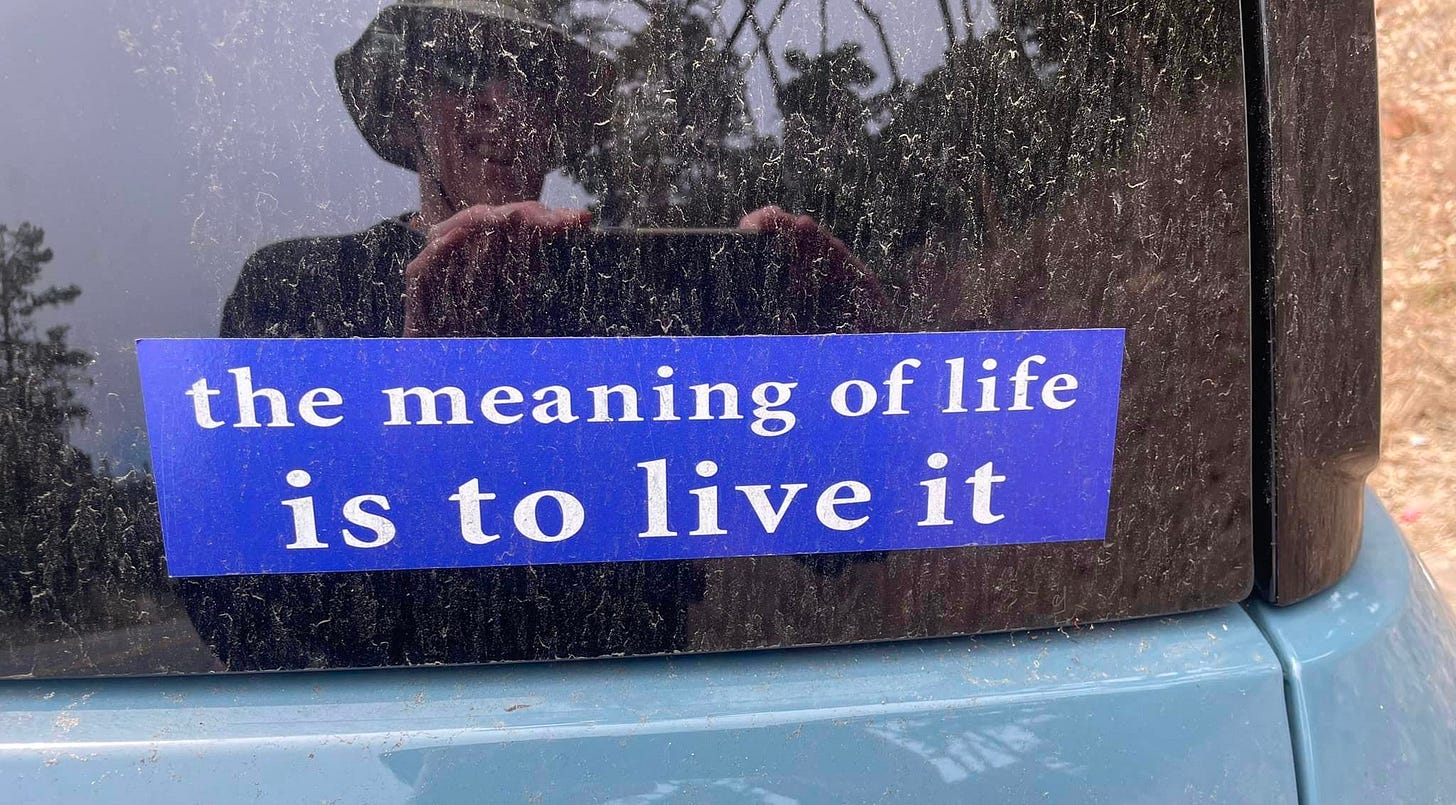This is a rewrite of an original blog from October 23, 2023
Today was Karen’s birthday.
She famously expanded this calendar event from a day to a week to a month. Her family squashed her voice growing up, so shining a spotlight was her way of saying, “I matter.”
As I contemplated her day, I felt a bit morose, the sense that my generation was on its way out. We were the Boomers, Flower Children, Woodstockers, rock-and-rollers, stoners, and the Pepsi Generation. We birthed Earth Day, the New Age, and Merry Prankster Stewart Brand’s Whole Earth Catalog — Brand’s giant “access to tools” guide with the photo he lobbied NASA to take. Brand printed buttons and posters to pester NASA with the question ‘‘Why haven’t we seen a photograph of the whole Earth yet?’’ In 1967, NASA released the first selfie of our planet, and we were charged to take care of it.
The Boomers also made housing unfordable and clogged politics with old farts. Plowing forward, it’s natural that we would redefine the death experience on our terms.
As I scrolled through my morning doom and gloom, Oliver Sacks, the British writer and neurologist (1933 - 2015), popped onto my screen:
“With each death, I have felt an abruption, a tearing away of part of myself. There will be no one like us when we are gone, but then there is no one like anyone else, ever. When people die, they cannot be replaced. They leave holes that cannot be filled, for it is the fate — the genetic and neural fate — of every human being to be a unique individual, to find his own path, to live his own life, to die his own death. I cannot pretend I am without fear. But my predominant feeling is one of gratitude. I have been a sentient being, a thinking animal, on this beautiful planet, and that in itself has been an enormous privilege and adventure.” ~ Oliver Sacks
Wow, but I can’t say I’m there yet. I heard: “They leave holes that cannot be filled.”
I thought of baking Karen an angel cake with the big hole in the center — but I’ve never made a cake. We’re a pie family.
I revisited “What is the Purpose of Living” and pulled out the top three:
“The meaning of life is just to be alive. It is so plain and so obvious and so simple.”~ Alan Watts
“If it were sufficient to love, things would be too easy. The more one loves, the stronger the absurd grows.” ~Albert Camus
“Like all organic life on Earth, human beings are apparatuses for transforming energies.” ~ Gurdjieff
I added one from Katherine Mansfield from a woman’s point of view. She was a modernist author influenced by Chekhov, Virginia Woolf, and of course. Gurdjieff. She sadly died from tuberculosis at age 34, leaving a big hole of possibility. Her prescription came closest to what I sought:
"Everything in life that we really accept undergoes a change. So suffering becomes love. That is the mystery." ~ Katherine Mansfield
Maybe they were all saying the same thing, which conflates to: “We are here just to be alive — as transformers of suffering into love. And the more one loves, the stronger the absurd grows.”
My existential alarm goes off whenever absurdity pulls at my seams.
No amount of cognitive inquiry was going to answer this question.
Then it happened. While walking to get a burger at my beloved O’Sullivan’s Irish Pub and feeling a bit of foreboding doom (my grandmother was Jewish Irish), I spotted a bumper sticker.
“Does that answer your question?” I imagined a leprechaun taunting from behind a tree.
“I’ll take that as one vote for Alan Watts,” I replied. “Thank you.”
And now the main event:
I wanted to connect with the birthday girl, and maybe Bhagwan could help me with my nagging sense that I put the energy out and receive nothing in return. Another vote for Camus.
I clicked the little icon on Skype. How about the Skype ringtone? Now, that’s absurd.
It’s easy to be ungrateful. When I was a kid, a crappy 3-minute international call was $12.00 — about $100 in today’s dollars. Plus, you couldn’t even call a guru back then. The Beatles didn’t meet the Maharishi until 1967. Oh, good. Bhagwan’s picking up.
BHAGWAN
Hello?
BRUCE
Bhagwan, thank you for taking this time. I wanted to talk… today’s Karen’s birthday.
BHAGWAN
Yes, this day must be hard.
BRUCE
When we last talked, it was less than a month after Karen passed. I was going through a monumental reset.
BHAGWAN
I can imagine that.
BRUCE
We were together 40 years, then boom; it was like losing half my limbs.
BHAGWAN
Yes, and with your children away, you're alone now.
BRUCE
I'm an outward person. My lifeblood is engaging with other people. So, this has been difficult — each month profoundly different. For the first few months, I was clinging in every direction. By May, I had to give that up. I realized I had to become comfortable living in my center.
BHAGWAN
Of course;
BRUCE
I have been asking, what is the point of living? Not in a suicidal way, but as a point of inquiry.
Is self-realization an end in itself? Is that it?
BHAGWAN
What's the meaning of living?
BRUCE
Yes.
BHAGWAN
You're presuming that you're Bruce Miller, and Bruce Miller doesn't know the purpose of living. But are you Bruce Miller? That's the question.
BRUCE
Or is Bruce Miller an experience that’s changing all the time?
BHAGWAN
That's right. But who's experiencing that change? There's an entity there. Bruce Miller's life has many changes, but who is Bruce Miller? Bruce Miller himself is changing. His body is changing. He's growing old and so on. He's getting thin and fat, whatever.
BRUCE
So, who is Bruce Miller?
BHAGWAN
Those changes are an outer experience. There's an entity that's constant.
BRUCE
After Karen passed, the Bruce Miller story has become less compelling. But I still have to get up in the morning.
BHAGWAN
Then you have to get up.
BRUCE
Is it okay to ask what the purpose of that is?
BHAGWAN
What's the purpose of getting up? What's the purpose of doing what I'm doing? My career, my job, my activities. What's the purpose of this? You're asking the purpose of Bruce Miller.
BRUCE
Yes. I can invent a story, but it’s not satisfying.
BHAGWAN
Bruce Miller has no purpose. You're not Bruce Miller. That's the point. So, who are you? There's an entity experiencing all these changes.
BRUCE
An entity experiencing this experience of the so-called Bruce Miller?
BHAGWAN
Exactly. That is constant. The Bruce Miller that's not constant doesn't make any sense. There's no meaning. You're born, you die, you're fat, happy, unhappy, you're going, you're coming.
None of that makes any sense because it's transient. But is there something constant that's experiencing all this?
BRUCE
I accept something is constant.
BHAGWAN
But what is it?
BRUCE
That's the question.
BHAGWAN
What's the entity that's experiencing all this? If you go there, you might find something constant, timeless, and eternal. And you might find satisfaction or purpose. The outer has no purpose except to lead you to the inner. The outer gives you tragedies, difficulties, and misfortune so that you can question the purpose of it all.
BRUCE
The outer performs this function well.
BHAGWAN
When your question reaches this point, you can finally say there's no purpose. There's no purpose in these outer experiences because they are all transient. If you ultimately find something constant, perhaps you'll find meaning there.
BRUCE
But in that constancy, nothing is happening.
BHAGWAN
Nothing's happening. That's right. Nothing's happening. Nothing's changing. It's eternal – but you have to find that. You have to find that constant where nothing is happening. There's no time, there's no space, there's silence. It’s an eternal eternalness where there's no time, no measurement.
BRUCE
And in that constancy, is there abiding satisfaction?
BHAGWAN
Perhaps you'll discover blissfulness, satisfaction, meaning, love, beauty, and compassion. Perhaps you'll find all that.
BRUCE
But, in that self-subsistence, where nothing outward is happening but stillness itself, is that self-fulfilling. Is that it?
BHAGWAN
I might say that’s the case, but you have to find that out.
BRUCE
I'm still driven to create. Creative manifestation draws me forward.
BHAGWAN
When you discover that the outer is not fulfilling, the inner becomes the only place to go. If you're creative, you can find self-fulfillment from the creative source.
BRUCE
That's how I experience it.
BHAGWAN
But what's the source of your creativity? Where does it come from?
BRUCE
Creativity takes me closer to that source.
BHAGWAN
Creativity might also take you toward the outer — toward activity.
BRUCE
But it takes me to the source.
BHAGWAN
Where is this coming from?
BRUCE
That creativity comes out of nothing. How something manifests out of nothing, I find that absolutely fulfilling.
BHAGWAN
Yes, it's coming out of nothing – or coming out of the source of everything, the source of the universe, which is nothing. The universe is the creation, yet there is nothing in the source. You have to discover what it is.
BRUCE: This leads me to my main question – about Karen.
Two days before she passed, I put the phone to her ear, saying, “Karen, it's Bhagwan.” She was not verbal, but suddenly, and we were all surprised, she said. “I can feel him in my heart.”
BHAGWAN
I remember.
BRUCE
She passed away two days later. After four months of pain, suffering, and misdiagnoses from the medical people, I made peace with it — that she was in a cauldron, burning away everything that was no longer needed.
When the funeral transport people came, they said, “We’re putting her body in a bag; we advise you not to watch.”
But I looked anyway. It was instantly clear that Karen had nothing to do with the body in the room.
A day or two later, a medical intuitive named Shelly reported that Karen was in a good place and very happy.
Shelly was in Oregon, yet reported that Karen was like a Buddha – that’s the word she used. She said that Karen was staying around to be close to the people she loved so that they could experience how thin the veils were between this world and the next.
This is where constancy comes in. In April, I began to experience the constancy of her presence.
How do I know whether this is all my imagination or that Karen is actually with us?
BHAGWAN
If you experience that from a state of silence, it's not your imagination. But if you experience it as a visual, a feeling, or a sensation, that's imagination; that’s mind. But if you can experience what you described in silence and as a state of silence, that's not imagination. That's real.
BRUCE
It’s only there when I’m in deep silence.
BHAGWAN
That's the heart. When she said, “I can feel him in my heart,” that's it. In that state, you can feel it. That's not imagining, that's real.
BRUCE
This sensation only comes when I get so quiet I disappear. Suddenly, we're inseparable. I don't seek it out. It only comes when I become completely still.
BHAGWAN
That's not imagining.
BRUCE
We become inseparable. There's no me, no her, but that's…
BHAGWAN
That's the real thing.
BRUCE
Is there a place where she wants to connect to me through the heart? It's confusing.
BHAGWAN
There's no question of her being connected with you or whatever. You're one. You're always together. If you're inseparable, it means you have become one.
You're not two people who are connected with a link or something. You're so connected that you've become one. In silence, you experience that there's nothing. There's only silence. You both dissolved into silence.
BRUCE
That's my experience, but it's hard to put into words.
BHAGWAN
That's the place. And in that, there's no regret, there's no lament, there's no sadness, there's no tragedy, There's nothing. You might feel very fulfilled in that state.
BRUCE
What has made this whole experience manageable was the sense that she hasn't really gone anywhere.
BHAGWAN
Exactly. Exactly. But now, to be in that state all the time, you must let go of her form, her identity, her name, her body, feelings, and thoughts and go to that place of silence. And you'll find she's forever there, but not in form. In reality, form is not real; form is mental.
In reality, she's always there. You are together as one forever. But don't start thinking of her as Karen and you as Bruce. You both have to dissolve into that oneness where there's no Bruce or Karen. You dissolve into one, and that's silence, which is a state of love in the heart.
BRUCE
I'm feeling tearful as you say this.
BHAGWAN
This is the purpose of her passing away — to use that passing to get to that place of oneness.
BRUCE
She said that was her purpose from the day I met her.
BHAGWAN
That's it. She had to leave. If she hadn’t left, maybe you would never be able to find it. If she's there, why shouldn't you find it now? Since she's no longer here and you were deeply connected, you have to find her.
But you can't find her in form because that's gone. And even if her form wasn't gone, that was an interference, a distraction. You must find her now in Reality — not in mental imagination or visualization, but in the Real.
BRUCE
What kind of satisfaction requires disappearing in it?
BHAGWAN
That silent state is a state of fulfillment where you need nothing and have everything. You're fulfilled. It's not that Bruce is satisfied.
There's no Bruce there. It's not that Bruce is satisfied, but Bruce has dissolved into the state. And that state, when you discover it, you might find it's a state of satisfaction. Because nothing is required, nothing is needed.
There's no time, no space. It's eternal, infinite. It contains everything. It's the source of creativity. It's love, compassion, and beauty.
You can use endless descriptions, hundreds of names, or a million. But this can't be described. This has to be found by yourself, and Karen's passing is the incentive to do so.
BRUCE
In a funny way, it's the best thing that ever happened to me.
BHAGWAN
Exactly, exactly, exactly.
BRUCE
And also the worst.
BHAGWAN
It's the best thing that ever happened, and it was the end of what you wanted. What you were living had to end so that the best could happen.
BRUCE
It was only when I could embrace her passing this way that things started flowing again.
BHAGWAN
Exactly. Exactly.
BRUCE
In my email, I apologized to you for not staying in contact. You said you “never, ever” felt I left. Those were very kind words.
BHAGWAN
Even if you have had no contact for two years, I don't feel you've left. Because your commitment was sincere, it was perfect.
BRUCE
There's nowhere to leave.
BHAGWAN
Exactly.
BRUCE
Please give my best to Maya.
BHAGWAN
I'll say hello to her.
BRUCE
Thank you, Bhagwan, for taking this time. It means a lot. Have a great day.
BHAGWAN
You too, keep well. Goodbye.
I called Bhagwan expecting to get a potent quote for this chapter, but the tables were turned. The call launched me into perplexity — a drowning in love that was anything but satisfying.
We think we understand the story of our lives — the plotline, narrative arc, and the outcome. In truth, millions of stories populate the world, and all were ultimately penned by the same hand. I’ve given up the illusion that I am writing the exception.
Happy Birthday, Karen. It’s your Birthday in eternity.
In Condolence
Two weeks ago, I received a call from one of Bhagwan’s closest students. In tears, she reported that Bhagwan passed away that morning from respiratory distress while in India. In a strange way, this Skype session prepared me for the shock — but not for the hole.
I leave you with the announcement from Bhagwan’s family:
“Bhagwan Awatramani transcended into Maha Samadhi on January 14th, 2025. This sacred day coincided with the auspicious Maha Kumbh, a rare occurrence that happens once every 144 years, and Makar Sankranti, marking the sun's journey towards the northern hemisphere. Maha Samadhi represents the conscious exit of a spiritual master from their physical body, achieving liberation from the cycle of birth and death and merging with the divine and eternal bliss.
Today, January 25th, marks the 12th day, on which a small ceremony was held at the local Pisarnath Temple at Charlotte Lake, Matheran to mark the end of the intense mourning period, as the family and loved ones begin the process of healing and moving forward. This milestone signifies acceptance of his eternal presence, where emotional attachment gives way to timelessness, and his presence and love become a guiding light that continues to inspire and guide us on our own spiritual journeys and self-inquiry.
*Some notable examples of Maha Samadhi include:
- Ramana Maharshi
- Sai Baba of Shirdi (Kamu Baba's Guru)











Thank you, Bruce.